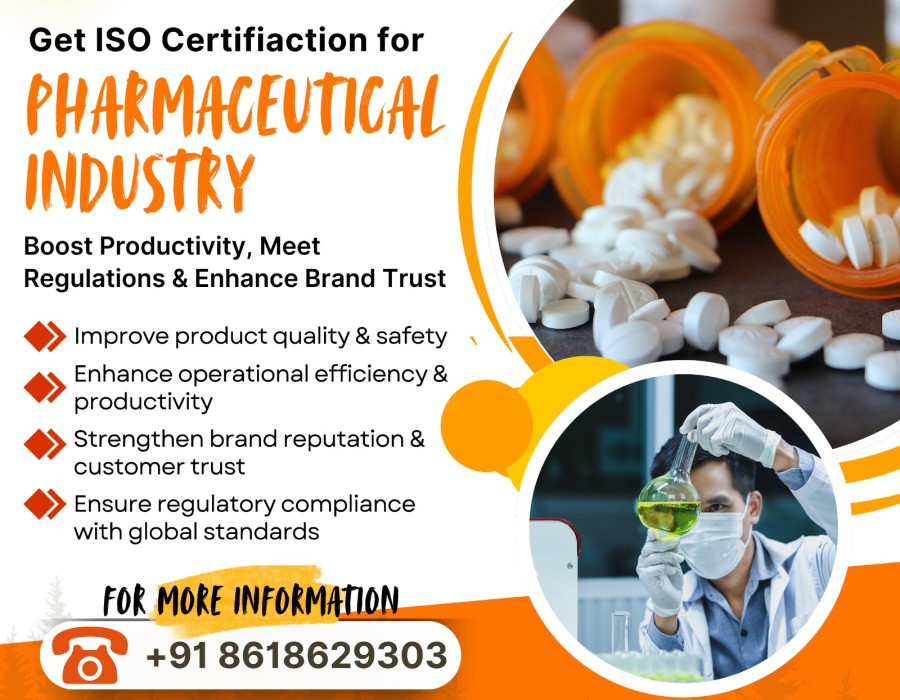ISO/IEC 17025 is the international standard that specifies the general requirements for the competence of testing and calibration laboratories. It is recognized worldwide and ensures that laboratories operate with technical proficiency, consistency, and reliability. One of the critical aspects of ISO 17025 compliance is ensuring personnel competence, as even the most advanced equipment cannot produce accurate results without qualified and skilled personnel.
Understanding Personnel Competence in ISO 17025
Personnel competence in an ISO 17025 Certification in Bangalore laboratory refers to the ability of laboratory staff to perform their assigned tasks correctly, reliably, and consistently, adhering to the standard’s requirements. Competent personnel are essential for maintaining the credibility of laboratory results, which directly impact decision-making in industries such as pharmaceuticals, manufacturing, food safety, environmental monitoring, and more.
ISO 17025 emphasizes that laboratories must employ personnel who are qualified by education, training, experience, and demonstrated skills. Competence is not a one-time assessment but an ongoing requirement, ensuring that staff remain capable of handling new technologies, methods, and regulatory demands.
Key Requirements for Personnel Competence
ISO 17025 outlines several fundamental requirements related to personnel competence:
- Education and Qualifications
- Laboratories must ensure that personnel possess the necessary academic qualifications and technical training relevant to their roles. This involves verifying educational certificates, professional credentials, and prior experience. For example, laboratory analysts performing chemical testing should have relevant degrees in chemistry or related fields.
- Training and Development
- Even well-educated personnel require structured training to meet specific laboratory requirements. ISO 17025 mandates ongoing training programs, including method-specific instructions, equipment operation, safety procedures, and quality management system (QMS) awareness. Competence development ensures that employees remain current with technological advancements and best practices.
- Experience and Skill Demonstration
- Personnel must have practical experience in the methods and techniques they perform. ISO 17025 requires laboratories to assess this through supervised work, proficiency testing, or participation in inter-laboratory comparisons. Demonstrating skills through practical assessments ensures that staff can execute tests and calibrations correctly and reproducibly.
- Competence Assessment and Monitoring
- Competence is not static; it must be regularly monitored and evaluated. ISO 17025 requires laboratories to implement a structured approach for competence assessment, including performance reviews, internal audits, proficiency tests, and continuous monitoring of employee performance. This approach ensures that personnel maintain high-quality standards over time.
- Documentation and Records
- Maintaining proper records of personnel qualifications, training, and competence assessments is a critical requirement. ISO 17025 mandates documentation to provide evidence of compliance during audits and assessments. This record-keeping also helps identify skill gaps and plan future training initiatives effectively.
- Role Assignment Based on Competence
- ISO 17025 requires laboratories to assign work only to personnel who are competent to perform the tasks. Responsibilities and authorities must be clearly defined in job descriptions or organizational charts, ensuring accountability and minimizing errors.
Implementing a Competence Framework in Laboratories
To comply with ISO 17025, laboratories should adopt a structured framework for managing personnel competence. This framework typically includes:
- Competence Matrix: A tool to map staff skills against required tasks, identifying training needs.
- Training Plans: Regular programs to enhance technical and soft skills.
- Proficiency Testing: Participation in internal or external proficiency schemes to validate practical skills.
- Performance Reviews: Regular evaluations to monitor and record staff performance.
- Continuous Improvement: Mechanisms for feedback, mentoring, and skill enhancement.
Benefits of Ensuring Personnel Competence
Maintaining high personnel competence in ISO 17025 laboratories brings numerous advantages:
- Accurate and Reliable Results: Skilled personnel reduce the risk of errors, improving test and calibration reliability.
- Regulatory Compliance: Competence management ensures adherence to ISO 17025 and other regulatory standards.
- Client Confidence: Clients are assured of professional handling and credible results.
- Enhanced Efficiency: Competent staff perform tasks efficiently, reducing turnaround time and operational costs.
Conclusion
Personnel competence is the backbone of ISO 17025 laboratory operations. Ensuring that staff are adequately trained, qualified, experienced, and continuously assessed is essential for delivering reliable results and maintaining international accreditation. Laboratories in Bangalore seeking ISO 17025 Certification in Bangalore must prioritize competence management as a key element of their quality management systems. Collaborating with experienced ISO 17025 Consultants in Bangalore and leveraging professional ISO 17025 Services in Bangalore can help laboratories establish robust frameworks for competence evaluation, training, and monitoring, ensuring sustainable compliance and operational excellence.
By focusing on personnel competence, laboratories not only comply with ISO 17025 requirements but also reinforce trust with clients, regulators, and industry stakeholders, creating a foundation for long-term success.





Comments